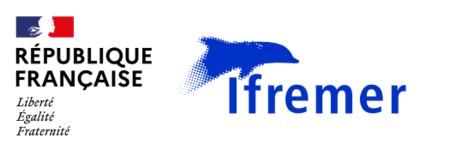Fisheries data collection for the Common Fisheries Policy
IFREMER contributes to the creation of and access to databases for fisheries assessments and research.
IFREMER activities in this field are part of its goal to optimise knowledge transfer of the institute’s know-how in observation and monitoring, as laid out in the Objectives Contract signed between the French government and IFREMER for the 2014-2017 period. These activities involve in particular the “pursuit of fisheries data collection by focusing the Institute’s contribution on scientific tasks”, the global objective being to contribute to the creation of a fisheries database for assessment and research needs and to provide access to this database.
Data collected
The institute is a contractor acting on behalf of the Directorate for Sea Fisheries and Aquaculture to monitor professional fishing activities including the possibility to directly contribute to data collection in Martinique, French Guiana and Reunion Island. To establish indicators of capacity, fishing effort and landings, the institute proposes algorithmic approaches for which the availability and the quality of data in each fisheries sector is vital.
Obsmer, a catch sampling programme aboard professional fishing boats.
Obsmer aims to estimate the composition of the total catch, including in particular the discard fraction, and to observe current fishing practices and operations in detail. It meets European obligations for fisheries data collection. The observation of professional catches by scientists aboard actual fishing boats is one of the only ways to determine the species composition and size structure of the harvested fraction that is not landed (discards). Data collection on discards is required by the DC-MAP to improve stock assessments and measure the impact of fishing on species of concern (protected, endangered or threatened).
Obsventes, a land-based biological sampling programme
Obsventes aims to estimate the composition of the total catch, including in particular the discard fraction, and to observe current fishing practices and operations in detail. It meets European obligations for fisheries data collection. The observation of professional catches by scientists aboard actual fishing boats is one of the only ways to determine the species composition and size structure of the harvested fraction that is not landed (discards). Data collection on discards is required by the DC-MAP to improve stock assessments and measure the impact of fishing on species of concern (protected, endangered or threatened).
Obsdeb, a sampling programme of landings
Obsbed aims to estimate fishing effort and species-specific landings in regions where catch reporting data are incomplete and of poor quality. The sampling plan is based on the analysis of seasonal activity. The zone covered is the Mediterranean Sea, the French Antilles, French Guiana, and Réunion Island.
Scientific cruises, another way to collect data
Scientific cruises meet the need to collect information on
- management of the common fisheries policy,
- implement of standardisation as defined collectively in international instances,
- management plans and their assessment, including ecosystem variables,
- geographic coverage according to national priorities (fish stocks and zones under French jurisdiction).
Scientific cruises also aim to constitute a continuous long-term data time series.
Data access
- Data access and reporting to DC-MAP (Multi-Annual Programme for Data Collection) for end-users: IFREMER implements an instrument to prepare data for reporting, organised by the Credo service.
- Ecosystem indicators for DC-MAP: IFREMER participates in reporting environmental indicators and more generally data processing to provide information required for stock assessment working groups and to answer calls for data.
- Delivery of scientific opinions and advice on the national and international levels: IFREMER participates in meetings and international expert groups organised each year in support of the Common Fisheries Policy.
